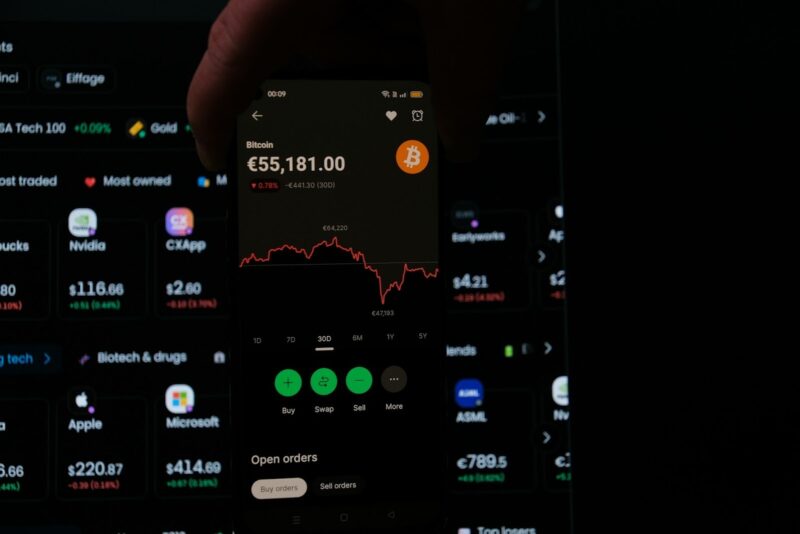Table of Contents
ToggleBlockchain, originally developed to support cryptocurrencies like Bitcoin and Ethereum, has demonstrated its value far beyond digital currency. Its core attributes, decentralization, transparency, and immutability provide practical solutions to challenges faced by a variety of industries.
Businesses are increasingly adopting blockchain to enhance operations, improve security, and establish trust with stakeholders.
Supply Chain Management
Efficient and reliable supply chain systems are essential for businesses to meet consumer expectations. Blockchain technology addresses persistent issues in supply chain operations, such as inefficiencies, fraud, and limited visibility. By offering a transparent and tamper-proof ledger, it enables companies to track products accurately from their origin to the end consumer.
This technology has been successfully implemented by global corporations. One notable example is Walmart, which uses blockchain to monitor the movement of produce. The system has reduced the time required to trace an item’s source from several days to mere seconds, providing significant benefits in cases involving product recalls. This capability helps ensure food safety and protects consumers by quickly identifying contaminated items.
Ethical sourcing is another area where blockchain is making an impact. Companies in industries such as fashion and agriculture use it to verify the origin of raw materials, demonstrating their commitment to sustainability and ethical practices. By recording every transaction in a secure and transparent manner, this technology builds trust among consumers and business partners.
Entertainment and Gaming
The entertainment industry, particularly gaming, is also embracing blockchain technology. This technology facilitates the creation of decentralized marketplaces and the secure digital ownership of in-game assets through Non-Fungible Tokens (NFTs). This technology enables players to truly own their virtual items, trade them securely, and potentially earn real-world money.
Blockchain has had its impact in the iGaming industry as well, particularly with the Stake US online casino. More precisely, Stake US deposit methods include cryptocurrency options for making gold coin package purchases. Players can select from Bitcoin, Litecoin, Ethereum to Dogecoin, Bitcoin Cash, and Tether. The usage of cryptocurrencies in the online casino industry has ensured faster transactions and fairer gaming conditions.
Healthcare
Data security and accessibility are two of the most pressing challenges in the healthcare sector. Patient records are often scattered across various systems, leading to inefficiencies and an increased risk of breaches. Blockchain offers a unified platform for securely storing and sharing sensitive information, with access restricted to authorized parties.
Estonia has implemented blockchain-based systems to manage medical records for its citizens. Patients maintain control over their data and can grant or revoke access as needed.

This approach ensures privacy while streamlining processes for healthcare providers. It also reduces administrative burdens, freeing up resources for direct patient care.
Beyond record management, it can be applied to track pharmaceutical supply chains. Counterfeit medications pose a serious risk to patient safety, and blockchain’s secure ledger helps ensure the authenticity of drugs by verifying their journey from manufacturer to pharmacy.
Real Estate
Blockchain is simplifying traditionally complex real estate transactions by reducing reliance on intermediaries. Agreements are executed using smart contracts, which enforce terms automatically when predefined conditions are met. This speeds up the transaction process while reducing costs and minimizing the risk of errors or fraud.
Propy, a blockchain-based platform, allows buyers and sellers to securely complete property transactions. Property records stored on the blockchain are tamper-proof, ensuring the accuracy and reliability of ownership information. This makes title verification faster and more secure. For wholesale real estate investors, this enhanced security ensures that transactions are not only quicker but also more reliable.
The technology also supports fractional ownership, making real estate investment more accessible. Individuals can purchase shares of a property rather than the entire asset, broadening investment opportunities while maintaining transparency.
Voting Systems
Blockchain has the potential to address concerns about the integrity of voting systems and governance by providing a secure, tamper-proof way to record votes. This ensures that results cannot be altered, offering greater confidence in the process.
Several pilot programs have already tested blockchain-based voting. In the United States, local governments in West Virginia and Utah County have used these systems for small-scale elections. Results showed improved security and accessibility, particularly for voters living abroad or those unable to attend polling stations in person.

While challenges such as scalability and voter anonymity remain, ongoing development is addressing these issues. It offers a promising path toward fairer and more transparent elections.





